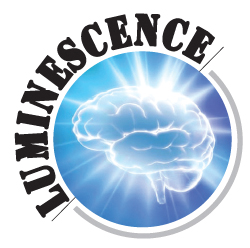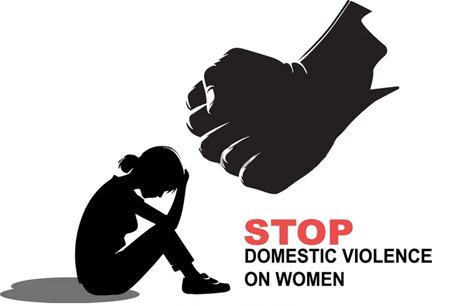 The instant a man crosses the line and inflicts harm on a woman, he shatters not only her dignity but also his claim to true manhood. Violence and harassment against women are not just acts of aggression; they are betrayals of humanity. Such actions reduce men to mere shadows of what they are meant to be—protectors, allies, and equal partners in society. Manhood is not about dominance but about character, and true character lies in fostering respect, not instilling fear.
The instant a man crosses the line and inflicts harm on a woman, he shatters not only her dignity but also his claim to true manhood. Violence and harassment against women are not just acts of aggression; they are betrayals of humanity. Such actions reduce men to mere shadows of what they are meant to be—protectors, allies, and equal partners in society. Manhood is not about dominance but about character, and true character lies in fostering respect, not instilling fear.
Harassment and violence do not emerge in isolation; they are the product of ingrained social attitudes and systems that normalize such behaviour. It begins with small, seemingly trivial acts: a dismissive comment, an unwelcome stare, a joke at a woman’s expense. These “harmless” behaviours lay the groundwork for a culture that trivializes women’s experiences and devalues their humanity. From catcalling to stalking, and from workplace discrimination to domestic violence, the spectrum of harassment is wide, but its impact is uniformly devastating.
 Women across the globe continue to navigate spaces where their safety is never guaranteed. Whether it’s walking home at night, working in male-dominated industries, or simply existing online, the shadow of harassment looms large. These experiences are not just individual tragedies; they reflect a collective failure of society to create environments where women can live, work, and thrive without fear.
Women across the globe continue to navigate spaces where their safety is never guaranteed. Whether it’s walking home at night, working in male-dominated industries, or simply existing online, the shadow of harassment looms large. These experiences are not just individual tragedies; they reflect a collective failure of society to create environments where women can live, work, and thrive without fear.
Ending harassment requires us to confront the myths that perpetuate it. The idea that men are entitled to control, that women’s boundaries are negotiable, or that harassment is “just a joke” are dangerous fallacies. Such narratives not only excuse bad behaviour but also silence those who dare to speak out against it. To eliminate harassment, we must dismantle these toxic beliefs and replace them with values rooted in equality, empathy, and accountability.
True strength is not found in coercion or intimidation; it lies in the ability to treat others with respect, regardless of circumstance. The real measure of a man is not how much power he can wield over others, but how he uses his influence to uplift and protect. Raising a hand to a woman—or demeaning her through words or actions—is a sign of failure, not power. It reveals weakness, a lack of control, and a void where empathy should reside.
Harassment does not end with passive disapproval; it demands active intervention. Men have a critical role to play in this transformation. It is not enough to refrain from harmful behaviour; men must actively challenge it when they see it. Calling out inappropriate jokes, supporting women who come forward with their stories, and advocating for stricter policies against harassment are all necessary steps. Silence, in the face of injustice, is complicity.
Education is equally vital in this fight. Teaching boys from an early age about respect, consent, and boundaries lays the foundation for a healthier society. When children grow up understanding that strength is shown through kindness, and that every individual deserves dignity, they are far less likely to adopt harmful behaviours. Schools, families, and communities must come together to foster these values, ensuring that future generations break free from the toxic patterns of the past.
 The role of media cannot be overstated either. For too long, films, advertisements, and social platforms have perpetuated stereotypes that glorify toxic masculinity or objectify women. This must change. Media should celebrate stories of partnership, respect, and equality, showing that masculinity and empathy are not mutually exclusive. Representation matters—when young men see positive examples of masculinity, they are more likely to emulate them in their own lives.
The role of media cannot be overstated either. For too long, films, advertisements, and social platforms have perpetuated stereotypes that glorify toxic masculinity or objectify women. This must change. Media should celebrate stories of partnership, respect, and equality, showing that masculinity and empathy are not mutually exclusive. Representation matters—when young men see positive examples of masculinity, they are more likely to emulate them in their own lives.
Workplaces, too, have a responsibility to create safe environments for women. Strict policies against harassment, combined with mechanisms for anonymous reporting, can empower women to speak up without fear of retaliation. Companies must ensure that leadership is diverse and inclusive, setting a tone from the top that harassment will not be tolerated.
But policies and education alone are not enough. What is truly required is a cultural shift—a collective realization that harassment is not just a “women’s issue” but a human one. Every act of harassment, every instance of violence, diminishes us all. By standing together against such behaviours, we not only protect women but also reclaim the values of dignity and respect that define a civilized society.
The day a man harms a woman is the day he loses his humanity. To raise a hand against her—or to belittle her through harassment—is to step outside the bounds of morality and strength.
In a world where violence and harassment persist, men must rise above societal norms that condone such behaviour. They must lead by example, becoming allies in the fight for equality and champions of women’s rights. This is not a loss of power but a reclaiming of what it truly means to be human. Together, we can shatter the chains of harassment and violence, forging a world where respect reigns supreme, and every individual is free to live without fear.









